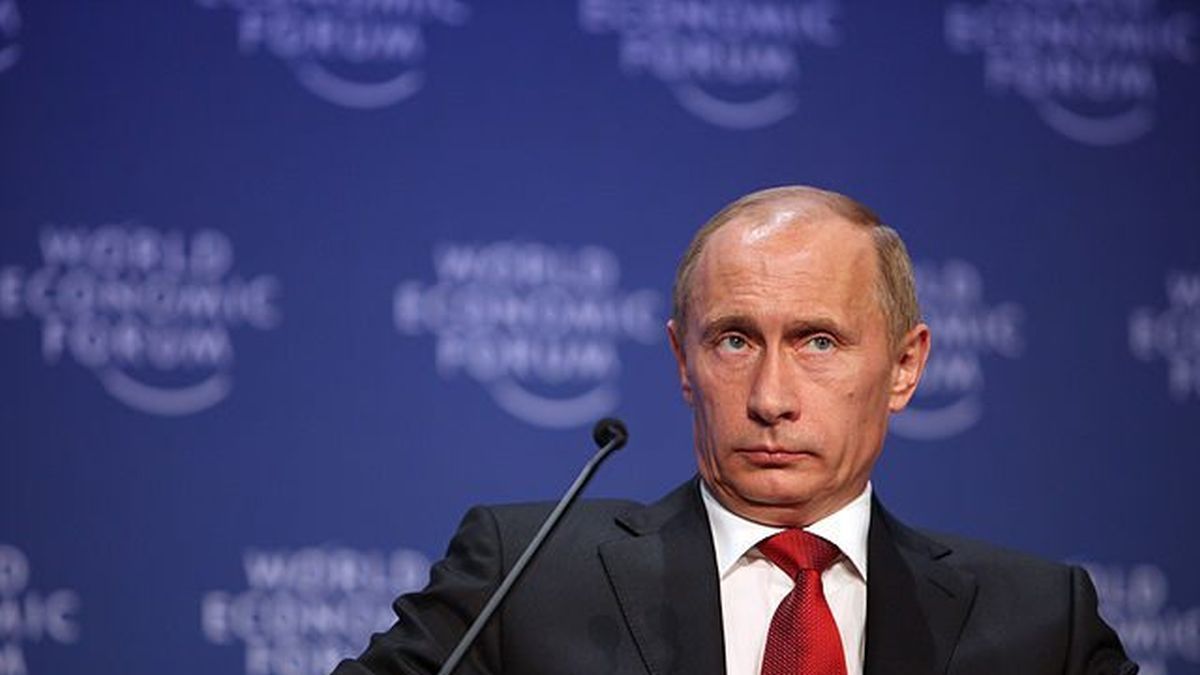Putin ordered his government and the Central Bank to launch the new system “within a week”, which must be “clear, transparent” and will involve “the acquisition of rubles in the Russian foreign exchange market”.
Consequences
The announcement, aimed at increasing the demand for rubles and putting a floor to the sharp drop it has registered since the beginning of the invasion of Ukraine on February 24, had an immediate effect: the Russian currency immediately rebounded 6% to reach a price of 99 per dollar. Before the conflict it was negotiated at 80.
Meanwhile, the impact on the energy market was negative. The benchmark one-month European TTF gas price jumped 19% and Brent crude responded with a 5% rise to above $120 a barrel.
Germany reacted with alarm. His Economy Minister, Robert Habeck, denounced at a press conference in Berlin that this demand “constitutes a breach of contract.” “We are going to discuss with our European partners to decide how to respond,” he added.
In his message, Putin suggested that other Russian exports will be affected by the same provision.
Causes
Western countries have frozen some $300 billion of central bank reserves abroad, a “theft” of close to 50% of the total, Foreign Minister Sergei Lavrov said on Wednesday.
“It is clear that delivering our goods to the EU, to the United States, and receiving dollars, euros and other currencies does not make sense to us anymore,” Putin said.
“Russia will, of course, continue to supply natural gas in accordance with the volumes and prices fixed in the previously concluded contracts. The changes will only affect the currency of payment, which will be changed to Russian rubles,” he stated.
According to Gazprom, 58% of its natural gas sales to Europe and other countries were settled by January 27 in euros. The US dollar accounted for about 39% of gross sales and the British pound about 3%.
Simultaneous Summits
The decision was made known shortly before the president of the United States, Joe Biden, left for Europe to participate today in the NATO, G7 and European Union (EU) summits in Brussels (see separate note). In them he intends to strengthen the unity of Western countries and increase unprecedented sanctions against Russia for its attempt, by invading Ukraine, to alter the post-Cold War balance of power.
As he left the White House, Biden told reporters that the possibility of a Russian chemical weapons attack in Ukraine is a “real threat.”
The possibility of an energy embargo against Russia is on the table due to pressure from the United States and European countries such as Poland and Ireland, something that Germany opposed at the foreign ministers’ meeting on Tuesday. If Western Europe’s overall dependence on Russian oil and gas reaches 40% and 20%, respectively, Germany’s is 60% and 40%, so sanctions in the energy field would cause a supply disaster that would massively harm to their families and industries.
Impact
According to analysts, Putin’s decision adds a new and severe element of tension to the already complicated energy market.
According to the Financial Times, “most of the operations with raw materials are carried out in dollars and, to a lesser extent, in euros, so it is not clear that Russia can force its main clients to change. Replacing Western currencies with rubles may prove difficult, if not impossible.”
“Trading in Russian currency has been severely limited by both Western sanctions and Russia’s own capital controls, which seek to prevent the flight of currency from the country,” he added.
Timothy Ash, emerging markets strategist at BlueBay Asset Management, told the Financial Times that “this will only make it more difficult to trade energy with Russia and will only accelerate the trend towards a diversification of sources of supply away from that country”.
As a preview, shortly before Putin’s announcement and Biden’s trip, Russian Deputy Prime Minister Alexander Novak said that if Western countries impose an embargo on Russian hydrocarbons, the market will collapse and prices will be “unpredictable.”
“It is absolutely clear that without Russian hydrocarbons, if sanctions are imposed, the oil and gas markets will collapse. The increase in the price of energy resources can be unpredictable”, said Novak, responsible for Energy, before the Duma, the lower house of Parliament.
He also described the decision not to put the Nord Stream 2 gas pipeline, which is already built, into service as “nonsense”.
“The prices of petroleum products, for example in Germany, have increased by up to 40%. The price of gas has sometimes reached up to 4,000 dollars per thousand cubic meters. And this is not the end,” he warned.
Source: Ambito
David William is a talented author who has made a name for himself in the world of writing. He is a professional author who writes on a wide range of topics, from general interest to opinion news. David is currently working as a writer at 24 hours worlds where he brings his unique perspective and in-depth research to his articles, making them both informative and engaging.




